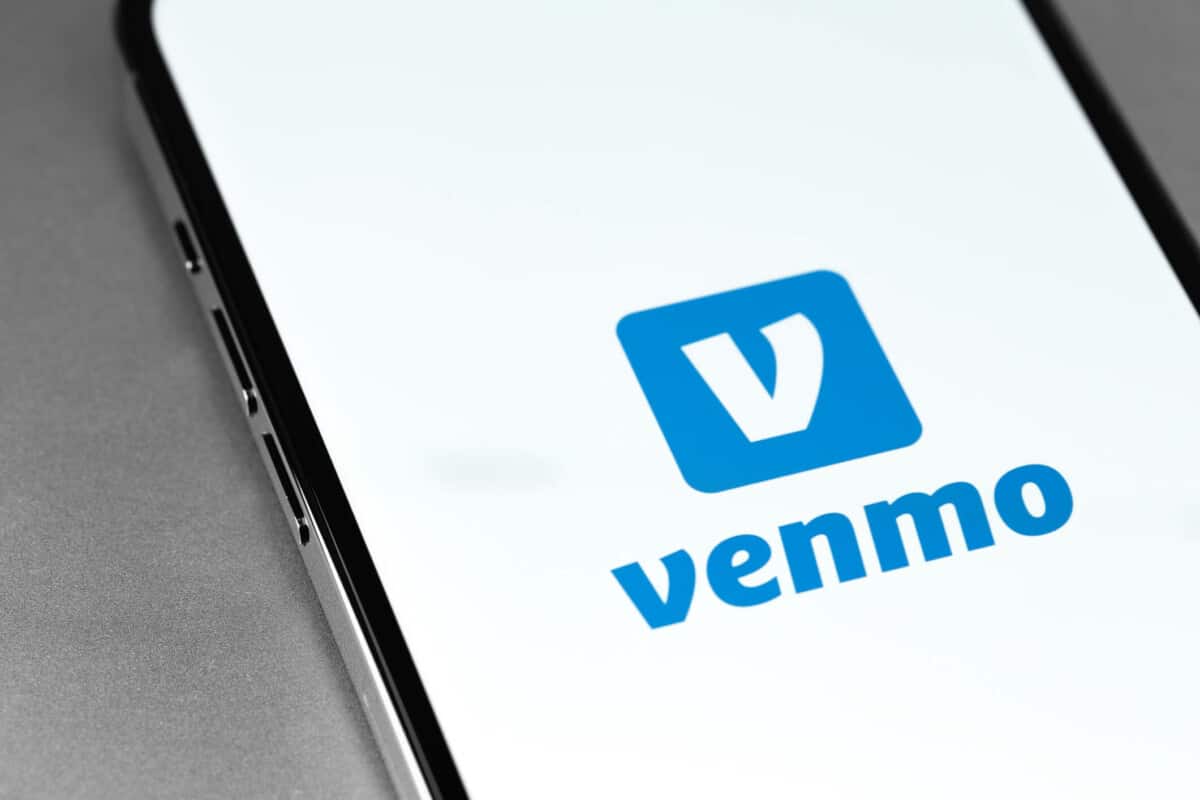Should You Accept Rent Through Venmo?
- April 12, 2023
- manoj
- Category: Rent & Security Deposits

As digital payments become more popular, landlords and tenants are turning to platforms like Venmo as an alternative to traditional methods.
But before deciding to use Venmo for rent payments, it’s important to consider the advantages and disadvantages.
This guide will explore the different aspects of using Venmo for rental payments, including convenience and security.
Benefits of Using Venmo for Rent Payments
- Convenience
There are various advantages to employing Venmo for accepting rent payments, especially convenience. Venmo is an application-driven system that permits users to conduct digital transactions, eliminating the requirement of physical cash or checks.
Consequently, tenants can make prompt and straightforward rent payments from any place, provided an internet connection. By accessing the Venmo app, tenants can easily input the owed amount and transfer it to the landlord or property manager.
- Speed
Using Venmo for rent payments has a significant benefit in terms of transaction speed. Unlike traditional payment methods, Venmo payments are processed instantly, enabling landlords to receive their rent payments much faster.
It is especially beneficial for those who depend on rental income to manage their expenses or mortgage payments, as they no longer need to wait for days or weeks to receive their payments.
- Tracking and Record-Keeping
A popular mobile payment platform also provides comprehensive monitoring and documentation features that can benefit renters and property owners alike.
The platform allows users to conveniently access their previous transactions, monitor their expenses, and create reports for tax or financial reasons.
By using this platform, landlords can maintain detailed records of rental transactions and expenditures, and tenants can easily track their rental payments and stay organized with their financial matters.
- Security
A popular platform that allows individuals to make and receive payments conveniently is known for its ability to keep user information secure. The platform utilizes various measures, including encryption, to safeguard sensitive personal and financial data.
Furthermore, users are not required to disclose confidential banking details when using the app, which can be reassuring for landlords and tenants regarding the safety of their financial transactions.
- Low Fees
Venmo is a well-known platform that offers cost-effective payment options for landlords and tenants. The platform’s transaction fees are relatively low, a significant user advantage.
Venmo charges a small fee for credit card transactions, but there are no charges for bank transfers or debit card transactions.
As a result, many people find Venmo an affordable option for paying rent, particularly if they want to avoid other payment methods’ associated fees.
Risks and Drawbacks of Using Venmo for Rent Payments
- Security and Privacy Concerns
It is essential to be cautious when using Venmo for rent payments, even though it is a safe platform. There is always the possibility of unauthorized access to your Venmo account through hacking.
Moreover, Venmo transactions aren’t entirely confidential since other users can view users’ transaction history and other data. Therefore, landlords and tenants should prioritize their Venmo accounts’ and data security, for example, by creating strong passwords and avoiding sharing sensitive information.
- Fees
Understanding the fees associated with using Venmo for rent payments is important. Though Venmo is often touted for its affordability, there are costs beyond the 3% fee for credit card transactions.
For example, Venmo imposes a fee for instant transfers that can be as much as 1% of the transaction amount. It can accumulate over time, especially for landlords receiving numerous monthly rent payments.
Another issue to remember is that Venmo limits how much users can send, which could be problematic for larger rent payments.
- Lack of Legal Protection
There could be a downside to utilizing Venmo for rental payments, as it may offer different legal protections for landlords and tenants than traditional payment methods.
The absence of formal dispute resolution processes, chargeback rights, and other safeguards may put both parties at risk of fraud or other issues when using Venmo for rent payments.
- Limited Acceptance
Some property owners may not consider Venmo a viable payment option for rent. Even though Venmo is gaining popularity, certain landlords might still prefer more conventional payment methods, like bank transfers or checks. It could restrict the convenience of using Venmo for certain renters.
- Payment Delays and Reversals
There are some risks involved in using Venmo to make rent payments. One of these risks is that payments can sometimes be delayed or reversed for various reasons, such as insufficient funds, user disagreements, or fraudulent behavior.
It can be especially challenging for landlords who depend on their rental income to manage their financial obligations, as delayed or reversed payments can lead to financial difficulties.
- Technical Glitches and Outages
As with any system, Venmo is vulnerable to technical issues and interruptions. In such problems, users might face difficulties in making or receiving payments or encounter latency in transaction processing. It can lead to complications for property owners and renters, disrupting rent payment procedures.
- Lack of Flexibility
Some considerations to remember when using certain digital payment platforms for rent payments, such as Venmo.
Remember that there may be better options than Venmo for those who prefer to pay in cash or for landlords who need to accept payments from multiple tenants or split rent payments between roommates.
Traditional payment methods like cash or checks offer more flexibility and are better suited for the landlord’s and tenants’ specific needs.
- Dependency on Technology
It’s worth considering that utilizing Venmo as a method for paying rent might pose a challenge for those who need access to technology and digital devices.
Individuals who don’t have a smartphone or reliable internet connection could face difficulties when attempting to use Venmo for rent payments.
Similarly, landlords who need to become more proficient with technology may encounter issues with setting up and overseeing Venmo transactions. As a result, Venmo may not be a viable payment choice for certain renters and landlords.
Legal and Regulatory Considerations
- Tax Implications
When utilizing Venmo for rental payments, knowing the legal implications is crucial. Landlords who receive rent payments through Venmo may need to report this as taxable income on their tax returns.
Likewise, tenants who receive rental income from roommates through Venmo may also have to report it. Accurate record-keeping is vital for both parties and seeking guidance from a tax expert is advisable to navigate individual tax obligations.
- Liability Issues
One aspect to remember when using Venmo to pay rent is the possibility of liability concerns. Although Venmo is typically regarded as a reliable service, there is always the possibility of unauthorized access to user accounts or fraudulent activity.
In a disagreement between a landlord and tenant regarding a Venmo transaction, establishing responsibility and resolving the matter may be challenging.
Therefore, landlords and tenants should safeguard their Venmo accounts and data and develop explicit procedures for resolving any Venmo-related disputes.
- Compliance with State and Federal Regulations
There are various factors that landlords and tenants should bear in mind when using Venmo for rent payments, including tax and liability considerations. It’s also crucial to comply with state and federal regulations that apply to rent payments via Venmo.
For instance, landlords must adhere to landlord-tenant laws relating to rent payments, such as those that pertain to late fees, security deposits, and evictions.
Similarly, tenants must abide by any relevant regulations regarding financial transactions and rent payments. Landlords and tenants must be aware of their legal responsibilities and ensure they comply with all relevant rules when using Venmo for rent payments.
Best Practices for Using Venmo for Rent Payments
- Set Up and Manage Transactions
When using Venmo for rent payments, it’s important to set up and manage transactions properly to ensure that payments are made and received accurately and on time. Some best practices for setting up and managing Venmo transactions include the following:
- Linking your bank account or debit card to Venmo to avoid fees for credit card transactions.
- Setting up automatic payments for rent to ensure that payments are made on time each month.
- Double-checking payment amounts and recipient information before sending payments.
- Using descriptive payment notes to indicate the purpose of the payment and ensure that payments are applied correctly.
- Keeping track of payment receipts and transaction history for record-keeping purposes.
Avoid Scams and Fraud
Like any financial platform, Venmo is vulnerable to scams and fraud. To avoid falling victim to these types of schemes, landlords and tenants should:
- Only accept payments from trusted individuals and sources.
- Avoid responding to unsolicited payment requests or requests for personal information.
- Be wary of requests to refund or cancel payments, as these may be attempts to scam or defraud users.
- Report suspicious activity or transactions to Venmo and law enforcement.
Ensure Security and Privacy
To ensure the security and privacy of Venmo transactions, landlords and tenants should take steps to protect their accounts and information, such as:
- Using strong passwords and enabling two-factor authentication for added security.
- Avoiding sharing sensitive information such as Social Security numbers or bank account information.
- Keeping their Venmo app and devices up-to-date with the latest security updates.
- Reviewing and adjusting privacy settings as needed to limit the sharing of personal information.
Communicate Clearly with Tenants or Landlords
Effective communication is key to using Venmo for rent payments successfully. Some best practices for communicating with tenants or landlords when using Venmo include:
- Establishing clear expectations and policies for Venmo payments in rental agreements or leases.
- Communicating payment deadlines and expectations clearly and consistently.
- Responding promptly to payment requests or inquiries from tenants or landlords.
- Providing receipts or other documentation to confirm payment receipt.
Alternative Payment Methods
There are numerous payment methods available for landlords and tenants to consider aside from Venmo. Investigating other options is critical, as they may provide more benefits or better suit one’s specific requirements.
Below are some alternative payment methods that landlords and tenants can explore, along with their benefits and drawbacks.
Checks
Checks have long been a popular payment method for rent payments. Here are some advantages and disadvantages of using checks for rent payments:
Advantages
- Widely accepted: Most landlords accept checks as a form of rent payment, so tenants don’t have to worry about finding a landlord who accepts their preferred payment method.
- Familiar: Many people are familiar with using checks and find them easy to use.
- Record-keeping: Checks provide a paper trail that can be helpful for record-keeping purposes.
Disadvantages
- Delayed processing: Checks can take several days to process, which can disadvantage landlords who rely on rental income to cover expenses.
- Risk of fraud: Checks can be lost or stolen, and there is always the risk of check fraud.
- Inconvenient: Writing checks can be inconvenient for tenants who don’t have checks on hand or who prefer electronic payment methods.
Bank Transfers
Bank transfers are another popular option for rent payments. Here are some advantages and disadvantages of using bank transfers for rent payments:
Advantages
- Fast: Bank transfers are typically processed quickly, which can be advantageous for landlords who need to receive rent payments quickly.
- Secure: Bank transfers are considered secure, requiring authentication and encryption to protect financial information.
- Easy to set up: Most banks offer online banking services that make setting up and managing bank transfers easy.
Disadvantages
- Fees: Some banks charge fees for bank transfers, which can disadvantage tenants or landlords who want to avoid additional costs.
- Limited acceptance: Some landlords may not accept bank transfers or only accept transfers from certain banks.
- Technical requirements: Bank transfers require access to online banking services and technical know-how, which can be a barrier for some tenants or landlords.
Cash
While cash is less commonly used for rent payments, it can be an option for some landlords and tenants. Here are some advantages and disadvantages of using cash for rent payments:
Advantages
- Immediate: Cash payments are immediate, which can be an advantage for landlords who need to receive rent payments quickly.
- Anonymity: Cash payments are anonymous, which can be a privacy advantage for tenants who don’t want to share their financial information with landlords.
- Flexibility: Cash payments can be convenient for tenants who don’t have access to other payment methods.
Disadvantages
- Risky: Cash payments can be risky, as there is always the risk of loss, theft, or misplacement of cash.
- No paper trail: Cash payments provide no paper trail, which can be a disadvantage for record-keeping purposes.
- Limited acceptance: Some landlords may only accept cash or cash payments in certain circumstances.
Conclusion
Utilizing Venmo as a payment method for rent presents several advantages, including convenience, fast processing times, and the ability to monitor expenses and payments.
However, there are also downsides and possible hazards to remember, such as confidentiality and safety issues, charges, and the absence of legal safeguards for renters and property owners.
To use Venmo effectively for rent payments, renters and property owners should take appropriate measures to secure their accounts and data, establish clear guidelines and rules, and communicate effectively.
It’s crucial to contemplate different ways of settling payments, such as paper notes, electronic funds transfer, or physical currency, to pinpoint the ideal choice that caters to your demands and inclinations.
By meticulously evaluating the pros and cons of each mode, property owners and occupants can elect the payment scheme that suits them the most.
FAQs
Is Venmo a safe and secure platform for rent payments?
Venmo is generally considered a safe and secure platform for rent payments, but there are always risks. To ensure the security of your Venmo transactions, it’s important to protect your account and information and to be aware of potential scams and frauds.
Are there any fees associated with using Venmo for rent payments?
Venmo does not charge fees for standard bank transfers or debit card transactions, but there are fees for credit card transactions. Landlords and tenants should check with their bank or credit card company to determine if there are any fees associated with using Venmo for rent payments.
Can landlords require tenants to pay rent through Venmo?
Landlords can generally choose which payment methods they accept for rent payments, but they cannot require tenants to use a specific payment method without a valid reason. Tenants concerned about using Venmo for rent payments should communicate with their landlord to explore alternative payment options.
How should landlords and tenants handle disputes over Venmo payments?
In the event of a dispute over a Venmo payment, landlords and tenants should communicate with each other to try to resolve the issue. If a resolution cannot be reached, Venmo provides a dispute resolution process that can be used to address the issue.
Are there any legal considerations when using Venmo for rent payments?
There are several legal considerations to remember when using Venmo for rent payments, including tax implications, liability issues, and compliance with state and federal regulations. Landlords and tenants should consult a legal or financial professional for guidance on their legal obligations.
What should I do if I suspect fraudulent activity on my Venmo account?
If you suspect fraudulent activity on your Venmo account, you should immediately report it to Venmo and law enforcement. You should also protect your account and financial information by changing your password and enabling two-factor authentication.




